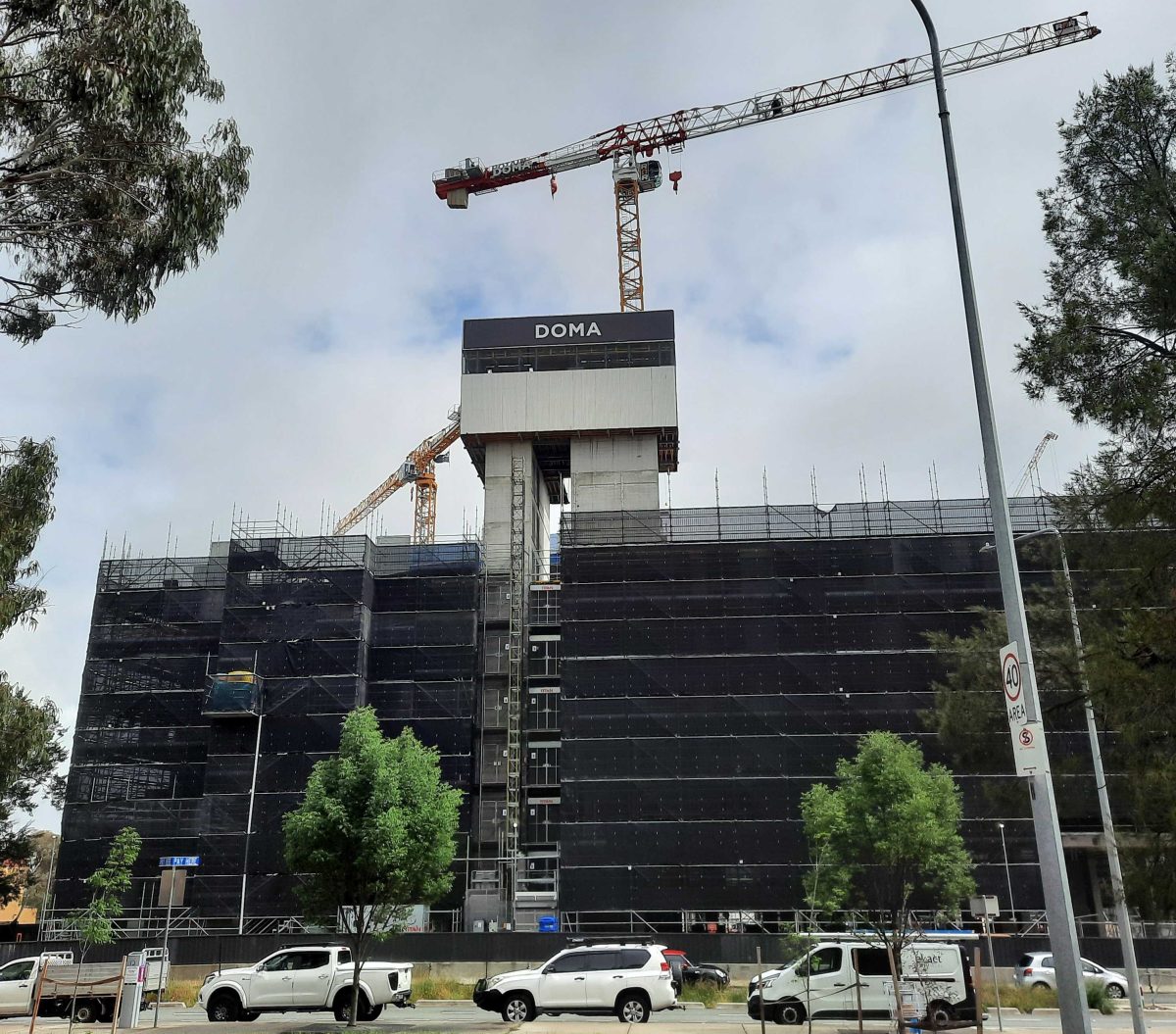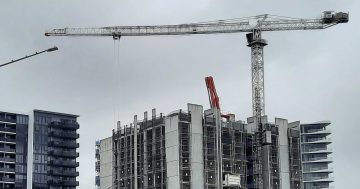
The Property Council says the Developer Bill will put ACT housing targets at risk. Photo: Ian Bushnell.
The Property Council has called on the ACT Government to conduct an independent economic assessment of the impacts of its plans to license developers and change the way rectification of defects is managed.
Legislative Assembly committee hearings begin on Thursday (7 March) into the Property Developers Bill. The council has lodged its submission supporting some aspects that seek to improve building quality, but it warns that key proposals such as making directors personally liable and extending the liability period to 10 years will drive developers out of Canberra, make homes more expensive and threaten any chance of resolving the housing crisis.
“It is crucial that the government, industry, and the public are made aware of the impact to our economy, investment and housing costs should this legislation be passed,” ACT Property Council executive director Shane Martin says in the submission.
“This assessment should include an analysis of the percentage of developers that will continue in the residential sector in Canberra if this bill is passed in its current form.”
However, in its submission, the Owners Corporation Network says the bill will be the cornerstone of the government’s actions to address the building defect issues in the strata sector.
The council says the bill will make the ACT the only jurisdiction in Australia to license developers and hold directors and their successors personally accountable.
It says this will likely only shift residential development, jobs and investment into neighbouring jurisdictions that offer more balanced regulatory settings.
The submission says this will have limited deterrence but will make development in the ACT a riskier proposition, increase litigation from homebuyers and force some developers to seek the protections offered by insolvency.
It says that instead of being encouraged to be innovative, as the new outcomes-based planning system aims to do, developers and builders are likely to stick to traditional but safe practices.
Insurance costs will increase or even become unattainable.
The council says allowing rectification orders to be issued retrospectively and up to 10 years back in time was unreasonable, given that some directors could be held liable for completed work they may not have even been involved in.
“There should be no retrospectivity contained within the liability and any liability that is contained within the bill should be harmonised with the Building Act statutory warranty and limitations period,” it says.
“This would create alignment for industry that identifies if there are any defects from the date of completion generally within the first two years.”
The council says developers should not be singled out when sub-contractors usually do the work that can be the subject of complaints.
It supports Master Builders ACT calls for licensing all trades, including waterproofers. Leaks are one of the common problems seen in multi-unit developments.
The council wants the bill to give developers the right to pursue sub-contractors and suppliers implicated in defects, saying this will better manage complaints and lead to swifter results.
It also urges all governments to implement the 24 recommendations of the Shergold Weir report on building compliance and confidence to achieve a uniform approach to building quality.
The submission concludes that the bill, in its current form, will only deter the supply of new housing.
“The ACT has consistently suffered setbacks in meeting its housing targets and this proposal will worsen the prospect of real and sustainable improvement in supply, particularly of affordable housing,” it says.
“At a time when the Territory faces a rental and affordability crisis, along with a new planning system, now is not the time to introduce an investment-stifling policy that will worsen the housing supply deficit.”
However, in its submission, the Owners Corporation Network says that the bill will help stop developers from phoenixing – or vanishing only to re-emerge under a different name – to avoid their responsibilities when defects often occur after the two-year warranty period.
The government estimates defects cost the community $50 million a year in the strata industry, but OCN says they cost much more.
“Such remediation costs add more to the overall cost of home ownership than building to a quality standard from the outset – especially in the strata sector where defects can be multi-million-dollar problems and affect many owners and renters,” it says.
OCN says developers have the means to protect themselves through better design, using trusted trades, sticking with the same architect through a project, and taking out Latent Defect Insurance.
It has also urged a number of additions to the bill including extending the period where the onus of proof falls on the developer/builder to demonstrate that a problem was not due to construction defects from two to 10 years.
OCN agrees that the bill should capture all players in the chain of responsibility and force developers/builders to use the same architect and engineer throughout the entire life of a project.





















